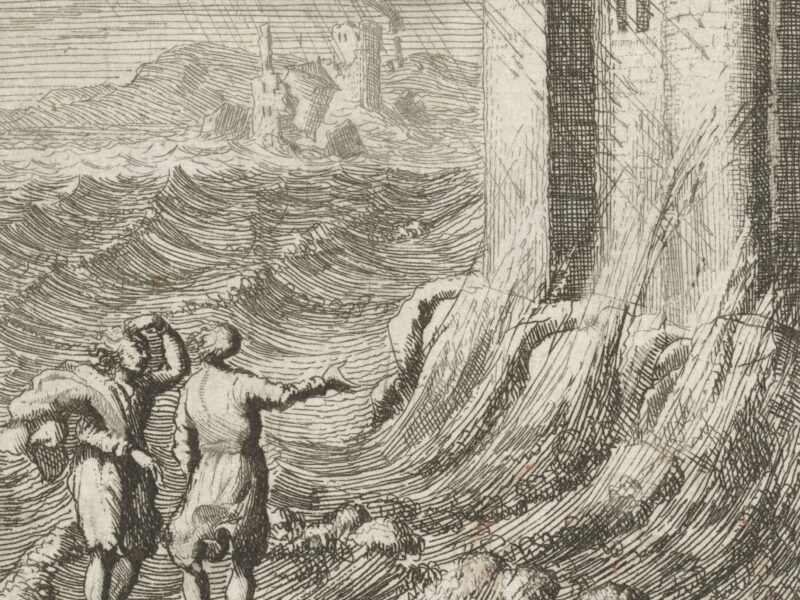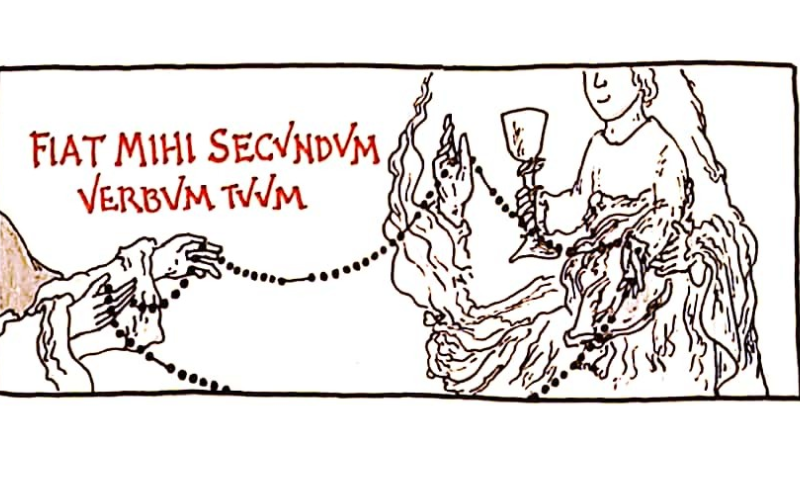
Christ the King
By Br Albert Elias Robertson, O.P. | Br Albert reflects on the Solemnity of Christ the King.
Anyone with even a passing knowledge of history knows that monarchy is not always the best form of government, nor indeed is the life of a monarch always the happiest of lives. From the outside it seems like a charmed existence, but our view of monarchy is changing slowly, particularly as the private lives of our own Royal Family in the United Kingdom have become more public. I am a rather avid watcher of the television show The Crown, and so I was delighted when series three was released this week. But a series like The Crown shows just how much has changed. Such a programme would have been simply unthinkable when the Queen ascended the throne.
But I suppose part of why The Crown is so popular is that it is curiously compelling viewing. At heart, the show is the story of a woman becoming a Queen, and what she looses and gains in the process. If some of the most striking words from the first season come from the Queen’s grandmother Queen Mary, “The Crown must always win,” perhaps the most striking words of season three come from Princess Margaret, the Queen’s sister, “You must never flinch.” The role of the monarch seems to be to set themselves as a rock against the changes of the world, which makes for a pretty lonely existence.
At least the present Queen lives in a world where her life is safe. This has certainly not been the experience of most monarchs in history, and even the Queen’s grandmother had seen close members of her family murdered by revolutionaries. Also on Netflix is The King, a retelling of the story of Henry V and the Battle of Agincourt loosely based on Shakespeare’s “Henriad,” and here we see monarchy in all its late-medieval violence. Henry begins the film intent on peace-making, he despises the cares of the Crown almost as much as he despises his father, and at the opening of the film he is engaged in a drink fuelled flight from responsibility. On ascending the throne, Henry vows to be a different king, a king of peace, but eventually, after a number of taunts and provocations, he declares war on France, has two close friends executed for their collusion with the French, wins victory over the Dauphin, forces King Charles the VI to make him heir, and marries the French King’s daughter. But victory is won at a high cost, for Falstaff, the one man who is actually a loyal friend, falls in battle. In the end, and here is a plot spoiler, it turns out the entire idea of French provocation was invented by Henry’s Chief Justice, William Gascoigne, as an easy way to make himself richer and ensure peace in England for King Henry. To be a good king for Gascoigne, war is necessary, and for him it’s better that it’s in France than in England. The betrayal by Gascoigne makes Henry’s loss of Falstaff even more poignant, for even though Falstaff warned Henry at the beginning that a king has no friends, only followers or foes like Gascoigne, Falstaff remained true to him, a true friend.
Of course Henry V was himself the son of a usurper, Henry Bolingbroke, and having watched The King I reread and watched some of the other parts of the “Henriad”. Some of my favourite parts are in Richard II which opens the saga stretching from the reign of Richard II to Henry V. The cares of the crown are portrayed best in Richard II, where the now deposed King Richard must give up the crown to Bolingbroke. For Richard the cares of the crown stay with him, despite being deposed; ‘Your cares set up do not my cares puck down. / My care is loss of care, by old care done; / Your care is gain of care, by new care won: / The cares I give I have, though given away; / They tend the crown, yet still with me they stay.’ (Richard II, Act IV, Scene II). But just as a crown is invested with power and significance – the central imagery of monarchy that takes on almost sacred significance – Shakespeare plays on the imagery of a crown, which as a band of precious metal is, quite literally, hollow: ‘For within the hollow crown / That rounds the mortal temples of a king / Keeps Death his court.’ (Richard II, Act III, Scene II).
But if earthly crowns are so hollow, is it a fitting image for God? Can we truly speak of Christ as our King? Jesus was born of a royal house, the House of David, and was indeed not just a king, but rather the King. But the reason why we can fittingly call Christ our King is precisely because he eschewed royal dignity in the way that worldly monarchs do not. Indeed when the people wanted to make him king, he departed from the crowd to avoid this happening, and his own disciples, in the end, found it very difficult to understand how their concept of a Messiah could in any way match Christ’s poverty and humility. Christ does make extraordinary claims, even of kingship as he stands before Pilate, but his are not the claims of a tyrant, or the ravings of a delusional man drunk on power, but the humble admission of his true identity which his sacred humanity both hides and reveals. As the Second Reading of this year’s feast tells us, Christ is King because of his power over creation, and he does not take up this power in the fragile way that earthly kings do, because the power is his very person, his very identity. There is nothing hollow to Christ’s crown.
But let’s return to those words of Falstaff from The King: a king has no friends, only followers or foes. But precisely the opposite is true of Christ’s Kingship, for it displays its power most obviously in reconciling his foes – turning those who have turned away from God back to the right path, making them his friends, and this is exactly what the Lord does in his last moments on the Cross in the Gospel Reading for today’s feast. While earthly kingship is, in its ancient iteration, a bloody and dangerous business without friends, or in its modern form, a lonely duty without friends, Jesus’s Divine and Universal Kingship is not interested in followers, but rather with friends.


